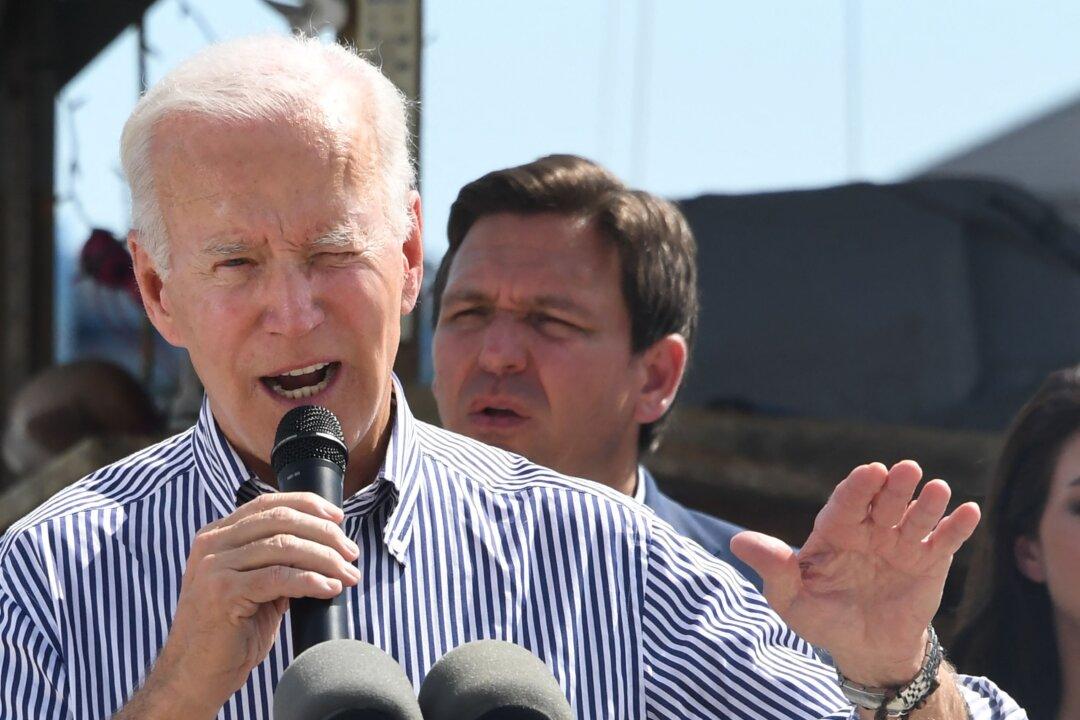President Joe Biden attributed deadly Hurricane Ian to climate change and suggested people “should do something about it,” despite such a conclusion going against the nation’s top hurricane expert.
Biden traveled on Oct. 5 to Florida to survey the devastation of hurricane-ravaged Florida and meet those who had lost homes and businesses. While the president put up a rare united front with Gov. Ron DeSantis in the wake of the Category 4 storm, as the two toured the damage and praised each other for collaboration, Biden opened his remarks by underscoring climate change.




